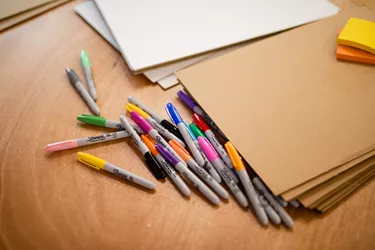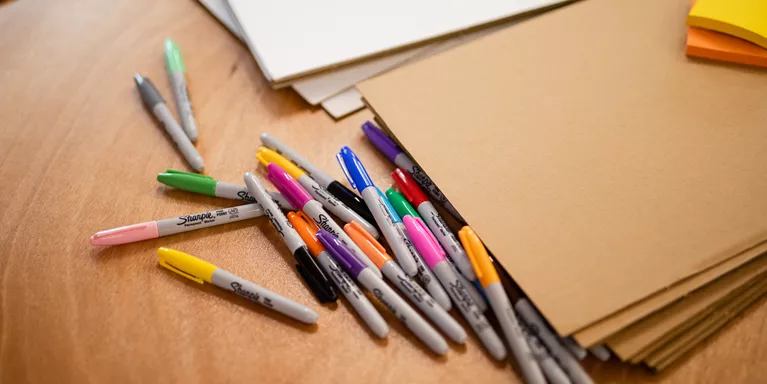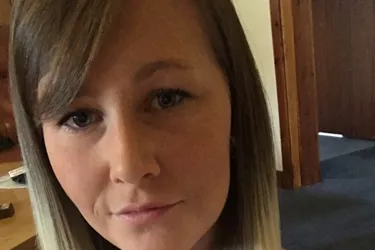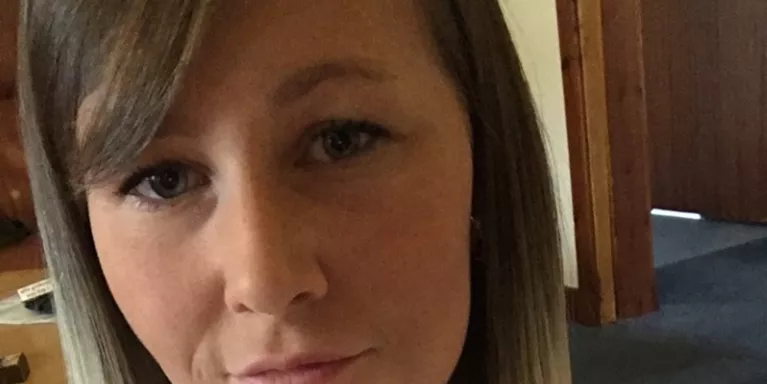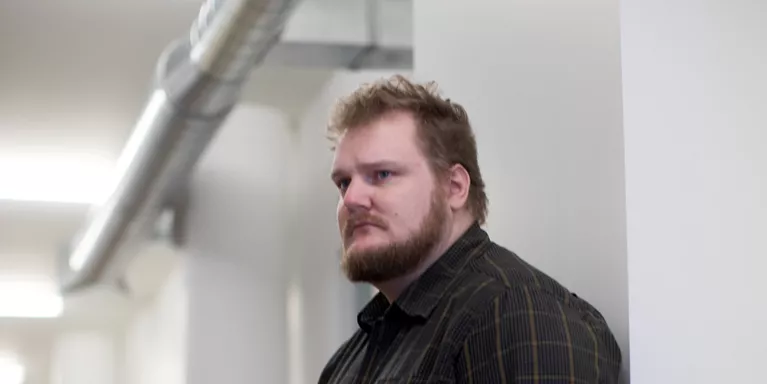The challenges of being a mum with bipolar
Sarah explains how she manages her bipolar diagnosis while looking after her two beloved young children.
I am a mummy to two little people. I also have rapid cycling bipolar disorder. These are not two things that complement each other well. I cannot count the number of times I have stopped and wondered how much damage my illness causes to my beautiful children. Hopefully none.
Hopefully they will learn from it, learn understanding, acceptance, patience, gratitude, how to love, how to be there for others. But the voice of doubt, the niggling fear suggests otherwise.
"To think that there may have been times when they could have felt unsafe, doubted my love and commitment to them, blamed themselves, breaks me a little more every day."
This is the hardest thing to live with. To know that seeing me live with bipolar has caused them pain, hurt, upset, fear, anxiety; to think that there may have been times when they could have felt unsafe, doubted my love and commitment to them, blamed themselves, breaks me a little more every day.
Rapid cycling bipolar disorder means swinging between hypomania and depression regularly. I wake up unsure of where I will be today - manic, depressed or functioning normally. I have to constantly censor my behaviour.
As with everything, there are ups and downs, good days and bad days. But never days where bipolar is not there with me, sitting on my shoulder haunting me as I play with my children, bath my babies, read my eldest a bedtime story.
Every day is a battle.
As with every battle, no two days are the same. Not all days end in disaster. Some days there are victories. For me, those victories are the little moments where my youngest toddles over to me and asks for a cuddle, or my eldest looks at me and says ‘Mumma I love you.’ These are the moments I treasure, but there are many more that cause me sadness and pain.
I take medication every day for my condition rapid cycling bipolar disorder. Each morning when I wake up, I take these tiny little pills that are supposed to make it all better. They don’t. They help lessen the extremes. But I still have to fight every day to maintain balance.
For the most part, I enjoy the hypomania stage. The energy it gives me, the love for life and enthusiasm for everything. My little people love it too, at first. They enjoy my energy and enthusiasm. They thrive off my love for life and enjoy the endless hours of carefully constructed play and learning opportunities I provide for them.
"When I become too much my children become overwhelmed and exhausted, then unsettled and finally apprehensive about being near me."
Until it becomes too much. Until I become too much. They become overwhelmed and exhausted, then unsettled and finally apprehensive about being near me. On occasions maybe even slightly afraid of me because by now the hypomania isn’t fun for any of us anymore. I have become obsessive and demanding, everything must be done exactly as and when I need it to be. My expectations become unrealistic, and I expect them to react and behave in the ways I anticipate.
Eventually, I become angry that things are not how they should be, that I can’t control everyone and everything around me. I become irrational and snappy when they make a minor mistake such as spilling a drink at the dinner table because they won’t sit still or falling and hurting themselves after I have given warnings. And then, at those times when they most need my love and comfort, they get my anger, my irrationality and my coldness.
No sooner has this occurred then I want to take it back. But it is done. Of course, they forgive and forget. I apologise and explain. But it does not change it or fix it.
Next comes the fall from hypomania. The need to be alone, the anger that no one understands, the feelings of worthlessness and self-hatred. Sometimes I go out on my own and walk in the dark. Sometimes I drink too much. Sometimes I hurt myself. I am crying out for help but no one can hear me.
After this, the depression kicks in. I complete day to day tasks but there is no engagement, no enthusiasm, no feeling. I don’t give my little people the attention or love they deserve. I care for them, but I can’t connect with them. Again, I reach out for help but as I cannot bring myself to actually ask for help outright, I am left to fight alone. But I have found a friend who has many similarities to myself and who I have found a huge strength. Without my friend I probably could not cope. Knowing that I have a friend who I can confide in and who can confide in me, someone who I can just ask for a hug from, go for a walk with, be in companionable silence with or talk about general rubbish with, is a great comfort.
It does get better though, sometimes quickly, sometimes slowly, sometimes after what seems like an eternity. Occasionally it gets worse first and I don’t want to carry on anymore. But it does get better.
"The one thing that never falls short is how much love I have for my two little people and how I would give my everything to them."
Then I can be OK for a while - still facing situations that trigger me every day, but coping. It is during these times where I give my absolute all to my children, trying to be the best parent I can be. Every day I set my parenting expectations so high. On some of my good days I may meet them, on others I fall short. But the one thing that never falls short is how much love I have for my two little people and how I would give my everything to them. I just have to hope and pray that this is enough.


Information and support
When you’re living with a mental health problem, or supporting someone who is, having access to the right information - about a condition, treatment options, or practical issues - is vital. Visit our information pages to find out more.
Share your story with others
Blogs and stories can show that people with mental health problems are cared about, understood and listened to. We can use it to challenge the status quo and change attitudes.










